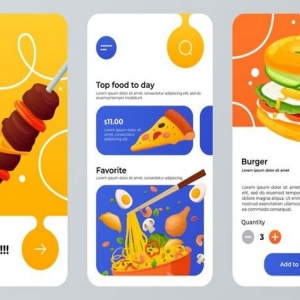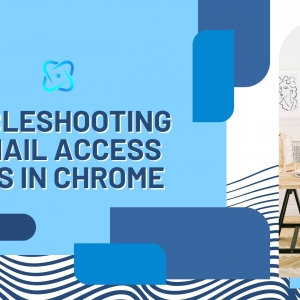The real estate industry is undergoing a massive digital shift, and at the heart of this transformation is the growing demand for property listing platforms. As more buyers and renters move online to search for properties, there's an urgent need for scalable, intuitive platforms that replicate the seamless experience users expect. This is where the idea of building a Zillow clone becomes not just relevant—but incredibly strategic for modern real estate entrepreneurs.
With the right approach, a Zillow clone platform can open the doors to new revenue streams, improved agent visibility, and automated property workflows. Whether you're a real estate firm looking to digitize your services or an entrepreneur eyeing the next big PropTech opportunity, building or investing in a Zillow-like solution is worth serious consideration.
Understanding the Zillow Model
Before diving into why a Zillow clone app is a great opportunity, it's important to understand what made Zillow so successful in the first place.
Zillow wasn’t the first to list properties online, but it became a market leader by combining user-friendly design, robust data analytics, and tools that catered to every stakeholder—buyers, renters, agents, and landlords. It streamlined property search, provided transparency in pricing through "Zestimates", and created an ecosystem that users returned to regularly.
A well-developed Zillow clone doesn't just mimic the look of Zillow—it replicates this ecosystem approach, tailored to your market or business model.
Why a Zillow Clone is a Smart Business Move
Market Demand is Shifting
The average home buyer or renter today begins their search online. In fact, over 90% of property searches start on the web or mobile. This shift in consumer behavior has created a huge demand for platforms that are easy to use, fast, and reliable.
A Zillow clone app helps meet this demand while allowing entrepreneurs to capture value by customizing the model for niche markets, specific regions, or even Business use cases like broker-only platforms.
Faster Time to Market with Proven Models
Developing a real estate marketplace from scratch can be resource-intensive and time-consuming. A Zillow clone acts as a shortcut—leveraging a proven structure that has already gained user trust in the market. You’re not reinventing the wheel; you’re refining it to fit your business strategy.
This is particularly beneficial if you work with an experienced app development company that can customize the clone to align with your branding, goals, and local regulations.
Monetization Opportunities
One of the biggest reasons entrepreneurs are gravitating toward Zillow clone platforms is the variety of revenue models available:
- Listing fees from agents and brokers
- Premium memberships for property owners or realtors
- Ad placement from mortgage lenders, insurance firms, and contractors
- Lead generation and data analytics services
When built with scalability in mind, a clone app can evolve into a full-fledged property management software solution with long-term revenue potential.
White Label Zillow Clones: Complete Business Edge
For businesses that don’t want to deal with development hassles, white label real estate apps provide an ideal solution. These are ready-made Zillow-like platforms that can be rebranded and launched quickly.
Using a white label real estate app allows:
- Fast deployment under your brand
- Focus on business development instead of coding
- Access to tested and refined user flows
- Easy integration with CRMs and listing databases
This approach is especially useful for real estate franchises, brokers managing multiple agents, and even digital agencies that want to offer a real estate solution to clients.
Key Features to Include in Your Zillow Clone
To create a truly competitive Zillow clone app, it’s not enough to just have listings. You need features that make the experience seamless and trustworthy. These include:
- Advanced search filters (price, location, amenities, property type)
- Interactive maps and geolocation services
- Virtual tours or 3D walkthroughs
- In-app messaging between buyers and agents
- Mortgage calculators and financial tools
- Agent and user dashboards
- Content management for blogs, news, or investment tips
- Analytics dashboard for agents and admins
- Multi-language and currency support (for global markets)
The more useful your features are to users, the more often they'll return—and the more value you’ll create over time.
Differentiating Your Zillow Clone in a Crowded Market
Even though the clone model is popular, the key to success lies in differentiation. This is where your industry insights or market focus come into play.
For example:
- Niche Down: Focus on a specific region or type of property (luxury, rentals, student housing).
- Agent-First Approach: Create features specifically tailored for real estate agents to close deals faster.
- AI and Automation: Integrate AI to offer dynamic pricing suggestions, smarter search, or lead scoring.
- End-to-End Services: Expand your Zillow clone into a complete property management software suite by including document uploads, rent tracking, or maintenance requests.
If you're working with a capable app development company, they can guide you on how to implement these differentiators without bloating the product.
Scaling and Managing the Platform
Once launched, your biggest priority becomes user acquisition and platform performance. Regular updates, security patches, and scaling infrastructure are crucial for long-term success.
Here’s how to stay ahead:
- Cloud-based architecture for scalability
- Mobile-first design for smartphone users
- Regular feedback loops from agents and users
- Analytics and reporting tools to track performance
As your platform matures, you can add modules for agent training, investment advice, or even real-time market updates.
Challenges You Should Be Ready For
Like any business venture, launching a Zillow clone comes with challenges:
- Regulatory compliance in different regions
- Keeping listings updated and verified
- High initial marketing costs
- Building trust among users
- Technical maintenance and updates
That’s why partnering with the right app development company—one that understands real estate workflows and has experience building marketplace platforms—is critical.
The Global Potential of Zillow Clone Platforms
While Zillow dominates in the U.S., there's no single dominant real estate app in many other countries or regions. That leaves massive room for disruption.
Whether you're targeting Southeast Asia, the Middle East, or Latin America, localized Zillow clone platforms have the potential to scale quickly—especially if adapted to local languages, currency, and property laws.
This opens the door for international entrepreneurs, local developers, and real estate agencies looking to digitize operations.
Conclusion
The rise of digital real estate platforms isn’t a trend—it’s the new standard. For entrepreneurs who understand the value of speed, technology, and customer-centric experiences, building a Zillow clone is a smart and potentially lucrative move.
Whether you choose to build from scratch or leverage a white label real estate app, success comes down to knowing your audience, building a feature-rich platform, and continuously optimizing the user experience.
Real estate will always be about location—but in the digital age, the right platform is everything.







